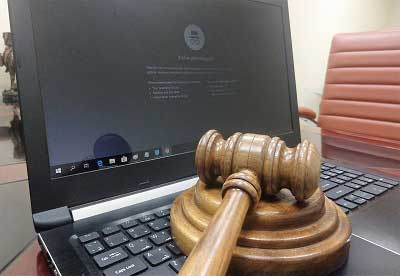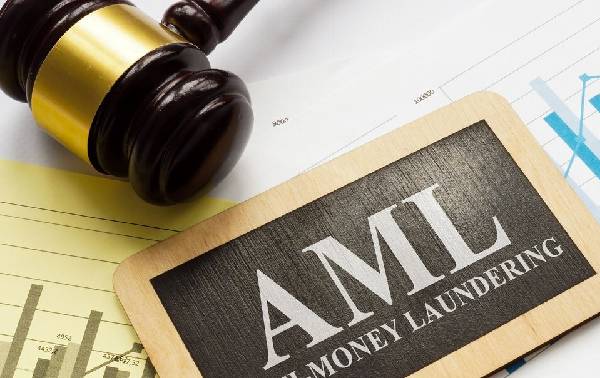Filing a criminal case in the UAE
This article has for an objective to give an illustration of the needed procedure to follow to successfully file a criminal case in the UAE, the types of crimes in the Emirati Law and the charges of each category.
The procedure:
1. Filing the complaint in the police
The first step that the victim needs to take to file a criminal case is to file a complaint against the offender in the police. The competent police to receive the complainant is the police that has jurisdiction, the following as per the law is where the criminal offence was committed The complaint needs to include the context of the victim and the offender, this means the relationship that involves both the offender and the victim (for instance if it’s professional, conjugal etc.), the series of events that the victim has undergone that lead to the commission of the criminal offence. The complaint can be submitted in a formal manner which means in writing, or it can be given through of an oral statement in the police and the following will be noted and registered in Arabic and then signed by the complainant.
This complaint is free of charge, yet if the complainant requires the involvement of a lawyer this will require the payment of the legal services provided by the lawyer.
Once the complaint is submitted the police, the latter will then submit the complaint to the competent department within the police to fully investigate and review the complaint. The police will take the statements of all parties, both the offender and the complainant, the police can as well request witnesses to testify, or the latter can be requested to provide their testimony as per the request of the complainant or the offender.
If the police concludes from its side that the complaint entails an actual commission of a criminal offence, then the complaint will be referred to the public prosecution. The following is a judicial authority that has been legally attributed the role of referreing criminal cases in the case where the designated prosecutor determines that a criminal offence has been committed under the UAE Penal Code.
2. The intervention of the Public Prosecution
This step is the second step that follows if the police submit the case to the public prosecution. The complainant and the offender will be summoned by the prosecutor and will be able to request the appearance of witnesses before the prosecutor. All of the statements will be registered in Arabic and the involved parties and witnesses included.
In the case where the prosecution has finalized his investigation and analysis and concluded that a criminal offence has been committed under the Emirati Law, it will order the summoning of the accused for the following to appear before the competent court and the prosecution will as well share with the competent court the details of the criminal offence and the charges of the accused. However, if the prosecution does not find sufficient evidence to characterize a violation under the UAE Penal Code it will not pursue the action and will as a result archive the case.
The competent courts in the UAE are determined according to the crime committed, the crimes as per the UAE Penal Code are categorized according to their level of seriousness.
The classifications of the crimes as per the UAE Penal Code
The UAE Penal Code divides crimes into three categories according to the level of the seriousness of the criminal offence.
The following are the three categories of crimes as per the UAE Penal Code:
1) Contraventions
2) Misdemeanors
3) Felonies
The level of punishment according to the category of the crime will vary in terms of harshness.
Punishments as per the UAE Penal Code
Contravention:
The following are the least in terms of seriousness and therefore the least punished. According to the UAE Penal Code, a contravention is any act or omission punishable under the laws or regulations, by one or both of the two following penalties:
- Custody for not less than twenty-four hours and not more than ten days
- A fine not exceeding 10,000 dirhams
Misdemeanors
According to the UAE Penal Code, a misdemeanor is an offence that is punishable by one or more of the following penalties:
- Confinement
- A fine exceeding 10,000 dirhams
- Diyat (payment of “blood money”), the following is due in the case of accidental death and is of 200,000 dirhams
Felonies:
According to the UAE Penal Code, a felony is the crime that is punished by any of the following punishments:
Any of retribution punishments
- Capital Punishment
- Life imprisonment
- Temporary imprisonment
Here are some important questions to be answered briefly regarding criminal procedures:
The recipient of the payable fines
A very important point to be clarified is that fines imposed on the offender are not payable to the victim, the following are to be paid to the UAE government. The fines or their maximum limit do not by any means limit the level of compensation that the victim can claim. The victim can in fact demand compensation for the damage that they have been subjected to separately, this means that the victim must file for a separate civil case, in which the victim needs to demonstrate how the criminal offense committed has caused them damage. For instance, our firm has filed a civil claim for a client who was a victim of a car accident who has suffered serious injuries having been subjected to it, the client has received a favorable decision in her criminal case, our firm then subsequently filed a civil claim to compensate the damage undergone by our client and received a favorable judgement from the court.
However, the victim can as well intervene in the criminal case by filing what is called as a joint civil action the following will allow the victim during same criminal case to demand compensation for the damage that is has suffered, in this case the once the judge rules that the crime was indeed committed he will afterwards and in the same decision award a separate financial compensation taking into consideration of the damage that the victim has been subjected to.
Does the victim have the right to appeal against the decision given by the Court of First Instance?
In the case where the prosecution considers the existence of a crime under the UAE Penal Code the case is then submitted to the court for the judge to decide on the case and give his verdict. However, the UAE court system is a 3-level system. The following means that the first judgement by what is called as the Court of the First Instance is going to be subjected to what is called as an appeal and the following is as well going to be subjected to cassation. This right is granted to the offender to ensure justice for both the victim and the offender. However, what is crucial to highlight that despite the appeal right being at the disposition of the offender it is in fact not the case for the victim. As the victim is primarily represented by the prosecution (The state) the following is entitled to the right of appeal, yet if the victim decides to file a joint civil action during the criminal proceedings, then the latter can file for appeal.
What are the delays to appeal the judgements?
The accused is entitled to the right to appeal twice, yet this right is subjected to delays that they imperatively need to respect for the appeal accepted, otherwise if the delay is over and the accused files for the appeal the appeal will not be accepted. The accused beholds the right to appeal the first judgement given by the Court of First Instance. The delay to file for appeal 15 days, if filed latter the appeal is not going to be accepted and the judgement of the Court of First Instance will then be definitive. However, If the accused was able to file for appeal and the Court of Appeal decided and the accused is still unsatisfied with the judgment, they can still challenge the judgement by filing an appeal against the decision of the Court of Appeal before the Court of Cassation. The delay to appeal before the Court of Cassation is 30 days.
The content of this article should not be taken as legal consultation. In case you are involved in any problems related to the following subject or have any queries, Hassan Al Reyami Advocates and legal consultants would be delighted to address your concerns during a 30-minute free legal consultation session offered to you.






